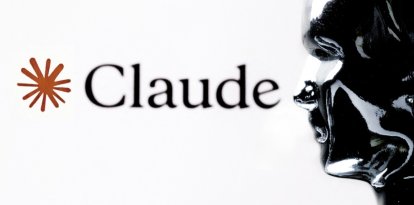TikTok's algorithm is fueling misinformation against Israel and anti-Semitic discourse
The Chinese platform notably favors pro-Palestine publications.

En TikTok, la etiqueta “Stand With Palestine” tiene más de 3.000 millones de views. La etiqueta “Stand With Israel” aún no llegó a la 300 millones de visualizaciones.
TikTok's algorithm is notably favoring pro-Palestinian labels and content on its platform. This situation considerably enhances anti-Semitic discourse and disinformation against Israel in the context of the war between Hamas and the Jewish State.
Jeff Morris, who writes about the Internet and technology in the substack The New Internet, posted a thread on X (formerly Twitter) showing how TikTok has been pushing anti-Israel content on its platform, managing to impact the opinion of young Americans between 18 and 24 years old who, according to a recent Harvard survey, justify Hamas terrorist attacks by 51%.
"I spent the weekend trying to reverse engineer the TikTok algorithm, as I am convinced this is the reason we are losing the information war with high school and college students," Morris said.
The founder of the company, Chapter One, explained that TikTok is the primary source of information for younger Americans who get informed on social media through fast, simple and massive audiovisual content in a matter of seconds.
This situation creates an ideal breeding ground for promoting disinformation and anti-Semitic rhetoric. In a brief search carried out by Voz Media, you can see how the TikTok search engines preferentially position videos when the words "Gaza hospital" or "Israel hospital" are used, showing a fake Israeli bombing against the Al Ahli Baptist Hospital when the evidence shows that the explosions were caused by a missile launched unsuccessfully from the Gaza Strip itself by a terrorist group.

Hamas, Israel, TikTok
These posts on TikTok, which falsely accuse Israel of having bombed a hospital in Gaza, are very well positioned in the platform's search engines despite their inaccuracies. (Medium Voice Design)
Morris himself showed an important fact: the labels "stand with Palestine" and "stand with Israel" have a very notable difference in reach and visits. The first has over 3.3 billion views at the time of publishing this article, a figure far exceeding the pro-Israel label, which barely has over 280 million views.
This generates two things, according to the expert: first, content creators generate more publications about Palestine because it is what is selling the most within the application, and second, a more aggressive stimulation of anti-Israel rhetoric generates greater reach and interactions.
"When I engaged with one post on TikTok supporting opposing views, my entire feed became aggressively anti-Israel. It was as if I was placed in an AB test variant and was told to see this war with Israel being the evil side," wrote the analyst, who called for balance in the debate about the war on TikTok.

























